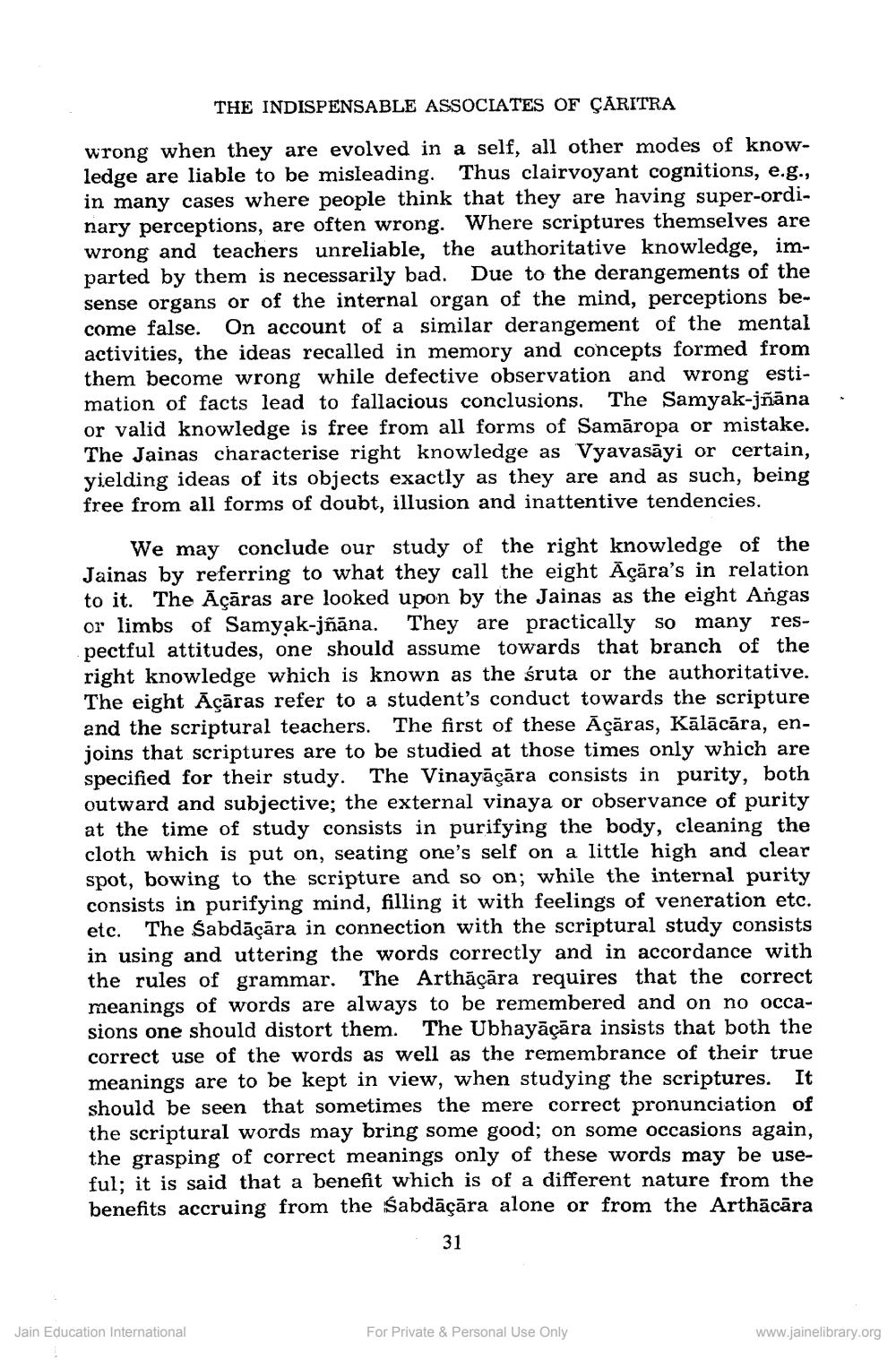________________
THE INDISPENSABLE ASSOCIATES OF ÇARITRA
wrong when they are evolved in a self, all other modes of knowledge are liable to be misleading. Thus clairvoyant cognitions, e.g., in many cases where people think that they are having super-ordinary perceptions, are often wrong. Where scriptures themselves are
ong and teachers unreliable, the authoritative knowledge, imparted by them is necessarily bad. Due to the derangements of the sense organs or of the internal organ of the mind, perceptions become false. On account of a similar derangement of the mental activities, the ideas recalled in memory and concepts formed from them become wrong while defective observation and wrong estimation of facts lead to fallacious conclusions. The Samyak-jñāna or valid knowledge is free from all forms of Samāropa or mistake. The Jainas characterise right knowledge as Vyavasāyi or certain, yielding ideas of its objects exactly as they are and as such, being free from all forms of doubt, illusion and inattentive tendencies.
We may conclude our study of the right knowledge of the Jainas by referring to what they call the eight Açāra's in relation to it. The Ācāras are looked upon by the Jainas as the eight Angas or limbs of Samyak-jñāna. They are practically so many respectful attitudes, one should assume towards that branch of the right knowledge which is known as the śruta or the authoritative. The eight Açāras refer to a student's conduct towards the scripture and the scriptural teachers. The first of these Ācāras, Kālācāra, enjoins that scriptures are to be studied at those times only which are specified for their study. The Vinayācāra consists in purity, both outward and subjective; the external vinaya or observance of purity at the time of study consists in purifying the body, cleaning the cloth which is put on, seating one's self on a little high and clear spot, bowing to the scripture and so on; while the internal purity consists in purifying mind, filling it with feelings of veneration etc. etc. The Śabdācāra in connection with the scriptural study consists in using and uttering the words correctly and in accordance with the rules of grammar. The Arthăçāra requires that the correct meanings of words are always to be remembered and on no occasions one should distort them. The Ubhayācāra insists that both the correct use of the words as well as the remembrance of their true meanings are to be kept in view, when studying the scriptures. It should be seen that sometimes the mere correct pronunciation of the scriptural words may bring some good; on some occasions again, the grasping of correct meanings only of these words may be useful; it is said that a benefit which is of a different nature from the benefits accruing from the Sabdācāra alone or from the Arthācāra
31
Jain Education International
For Private & Personal Use Only
www.jainelibrary.org




